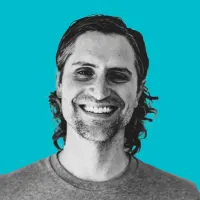This website uses cookies, belonging to us or third parties, to improve your experience, optimize performance and our services, understand your usage through analytics, and personalize advertising tailored to your interests on our site and third party sites. By continuing to use our site, you consent to such use of cookies. Please visit our Terms of Use and Privacy Policy where you can find out more about cookies and how to manage them.



In our busy and demanding world, feeling overwhelmed is a regular occurrence. It happens when our ability to cope with life's challenges becomes compromised. The practice of mindfulness, however, provides a practical method for dealing with difficult situations more calmly and clearly. In order to understand our thoughts, feelings, and sensations without becoming caught up in them, we must bring a non-judgmental awareness to the present moment. We can remove ourselves from the stress and look at our situation with compassion by practicing present-moment mindfulness.
When faced with challenging circumstances, mindfulness helps us to pause and make space for ourselves. By focusing on the present moment, we can break the cycle of anxiety and worry that typically follows after. This change in consciousness provides us with a clearer perspective, enabling us to differentiate between what is in our control and what is not. By practicing mindfulness, we can improve our ability to respond rather than react and discover how to make choices that are consistent with our values and overall well-being.
Another ability required for awareness under stressful circumstances is the ability to divide and conquer. This may need us to change the way we think, ask for help from others, or make a few little adjustments to our routines or surroundings. We can gradually feel less overwhelmed in our lives and strengthen our resilience by recognizing and addressing the various sources of it. In order to achieve greater clarity, calm, and well-being while we negotiate difficult situations, mindfulness proves to be a helpful tool.

In our busy and demanding world, feeling overwhelmed is a regular occurrence. It happens when our ability to cope with life's challenges becomes compromised. The practice of mindfulness, however, provides a practical method for dealing with difficult situations more calmly and clearly. In order to understand our thoughts, feelings, and sensations without becoming caught up in them, we must bring a non-judgmental awareness to the present moment. We can remove ourselves from the stress and look at our situation with compassion by practicing present-moment mindfulness.
When faced with challenging circumstances, mindfulness helps us to pause and make space for ourselves. By focusing on the present moment, we can break the cycle of anxiety and worry that typically follows after. This change in consciousness provides us with a clearer perspective, enabling us to differentiate between what is in our control and what is not. By practicing mindfulness, we can improve our ability to respond rather than react and discover how to make choices that are consistent with our values and overall well-being.
Another ability required for awareness under stressful circumstances is the ability to divide and conquer. This may need us to change the way we think, ask for help from others, or make a few little adjustments to our routines or surroundings. We can gradually feel less overwhelmed in our lives and strengthen our resilience by recognizing and addressing the various sources of it. In order to achieve greater clarity, calm, and well-being while we negotiate difficult situations, mindfulness proves to be a helpful tool.
You May Also Like

Thomas McConkie


